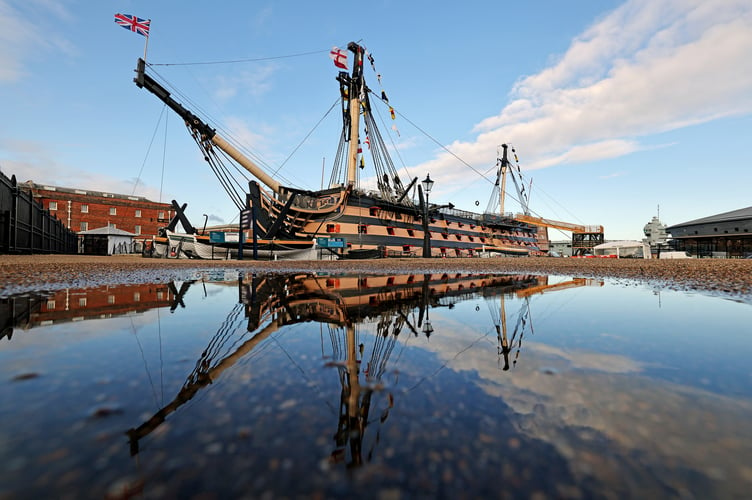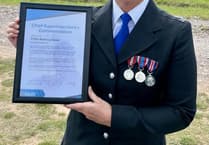A Royal Navy sailor has risen through the ranks to take command of one of the most iconic warships in the world – HMS Victory.
Lieutenant Commander Steve Cass has been appointed the veteran ship’s commanding officer. The 58-year-old takes charge of the ship’s company which works alongside its civilian staff at the ship’s permanent berth in Portsmouth Harbour.
“It’s just such a massive honour,” he said. “HMS Victory means so much to the Royal Navy and is the oldest commissioned warship in the world. I am still pinching myself to be honest.”
Lt Cdr Cass grew up in Porthleven, just a couple of miles from Royal Naval Air Station Culdrose. He went to school in Helston and quickly identified the Fleet Air Arm base for his future career.
He joined the Royal Navy in 1986 and was delighted to be posted back to RNAS Culdrose the following year, as an air engineering mechanic 2nd class. He worked on the navy’s Sea King helicopters and later the current Merlin helicopters.

He said: “Taking command of HMS Victory is not something I could ever have dreamed of when I joined up; that was to get my hands dirty working on Sea Kings. I come from a very humble Porthleven background and still have many friends and close family in the area.
“The way the Royal Navy works is a great leveller for any recruit. They cut our hair the same, dressed us the same and treated us as equals amongst ourselves. Ultimately, you are judged by your effort and ability. It’s all based on merit.”
Lt Cdr Cass rose through non-commissioned ranks to become a warrant officer and served for over three years as the most senior rating in the navy, known as warrant officer of the Naval Service.
He was commissioned as an officer on the recommendation of the Navy Board, first as a lieutenant and later promoted to lieutenant commander.
He has served in various roles including as a project manager at the training base HMS Collingwood, at the Air Engineering School at HMS Sultan and in Royal Navy recruitment.
Taking the position at HMS Victory meant leaving regular service and joining the Royal Navy Full Time Reserves.
He added: “I mulled it over for a week or two and decided to apply for the job. Leaving the full-time service was a difficult decision and it does feel daunting, although I am not leaving the service on very different terms. I don’t feel I have any less motivation or energy than I have had in the last 40 years.”





Comments
This article has no comments yet. Be the first to leave a comment.